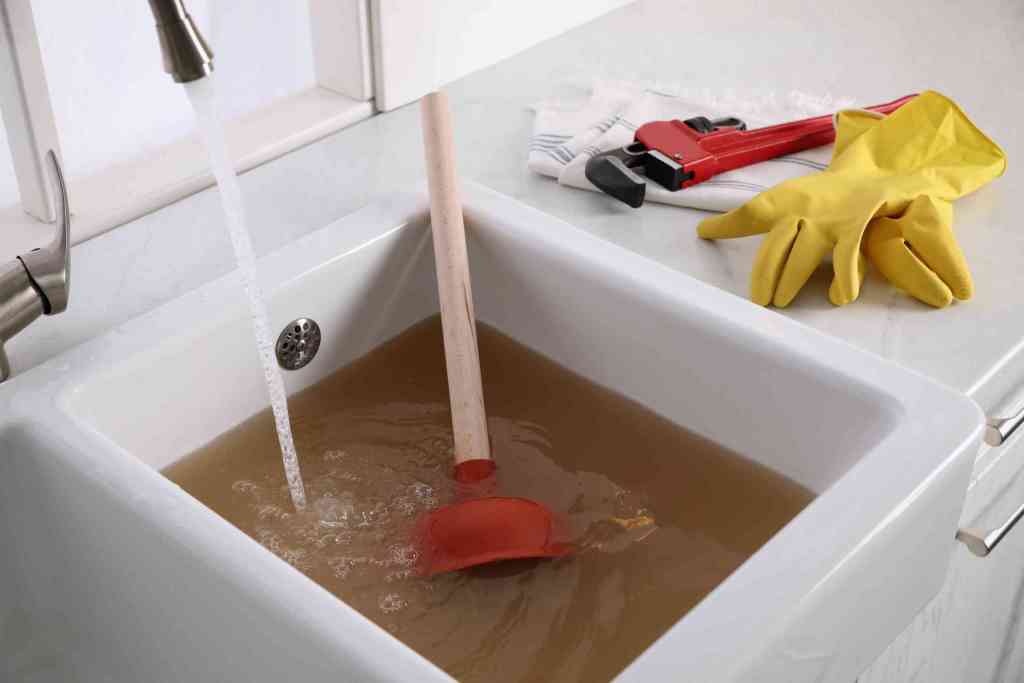
5 effective ways to unclog pipes
Does the water in your toilet refuse to go down? Do you smell foul odors coming from the plumbing system in your home or business? Do you hear strange noises coming from the pipes in your kitchen or bathroom? Does the water drain sluggishly from your kitchen sink, shower or hand sink? If so, the problem is undoubtedly a clogged drainpipe. Clumps of hair, soap, grease, food residue and other debris can easily clog the system of pipes in your home. To prevent the problem from becoming worse, you should have your pipes unclogged. Failure to do so could result in flooding or a serious backflow of wastewater, leading to very expensive repairs. To unclog your pipes lastingly, call on the services of a professional plumbing company so you can quickly regain full use of your bathroom or kitchen. If you would prefer trying to unclog your pipes yourself, on the other hand, here are a few tips to help you do it effectively.
Five effective methods for unclogging pipes
- A plunger
- A toilet snake
- Natural products
- Chemical products
- Drain cleaning
A plunger is an essential tool that can come in very handy for unclogging a drainpipe. Place the plunger over the drain hole and work it up and down to create alternating pressure and suction. Continue moving it in this way until the water begins to drain normally.
A toilet snake consists of a long, flexible metal coil that has a corkscrew-shaped auger or a little brush at the end. You can purchase a toilet snake at your local hardware store. To dislodge any accumulated debris trapped in the drainpipe, introduce the snake into the drain hole and rotate it back and forth to break up the clump.
The most ecological means of unclogging a pipe is to use a natural substance, such as baking soda, vinegar or boiling water. After removing any stagnant water, pour baking soda down the drain, followed by vinegar. This will trigger an effervescent chemical reaction that will destroy the clump of accumulated debris. Instead of vinegar, you can also pour boiling water down the drain and let it sit for about forty minutes.
You can even use boiling water alone to dissolve accumulated grease or food residue.
Specialized chemicals for unclogging drains are another effective solution. However, you must be very careful to protect your hands and eyes when using these substances. After removing any stagnant water, pour the chemical product down the clogged drain. It will quickly dissolve the accumulated debris, allowing the water to flow once again. WE DO NOT RECOMMEND THE USE OF CHEMICAL PRODUCTS, AS THEY CAN DAMAGE YOUR PLUMBING FIXTURES AND BURN THE PIPES.
Certain debris can accumulate in the drain, preventing the water from flowing. In this case, you can clean the drain. To do so, put a bucket underneath the sink and unscrew the drain components. After recovering the stagnant water and debris, clean the inside of the pipe and the drain before reinstalling them.
Roland Bourbonnais Ltée. for effective pipe unclogging
Drain unclogging is a very complex process that requires experience and know-how—as well as the use of specific tools—in order to ensure that the plumbing work progresses under the best possible conditions and yields flawless results. To enjoy a healthy, pleasant home again, call on the services of the team of meticulous professional plumbers at Roland Bourbonnais. Regardless of the nature or scope of your problem, the experts at Roland Bourbonnais can perform a precise diagnosis in order to offer you the best solutions for unclogging your pipes thoroughly, effectively and lastingly.

